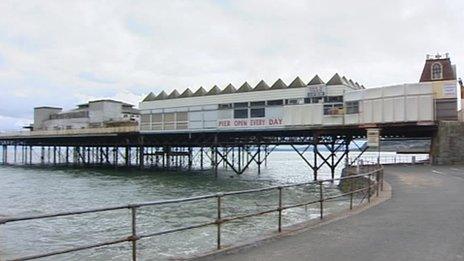Sir Harry Secombe: Treasure trove shared on centenary
- Published
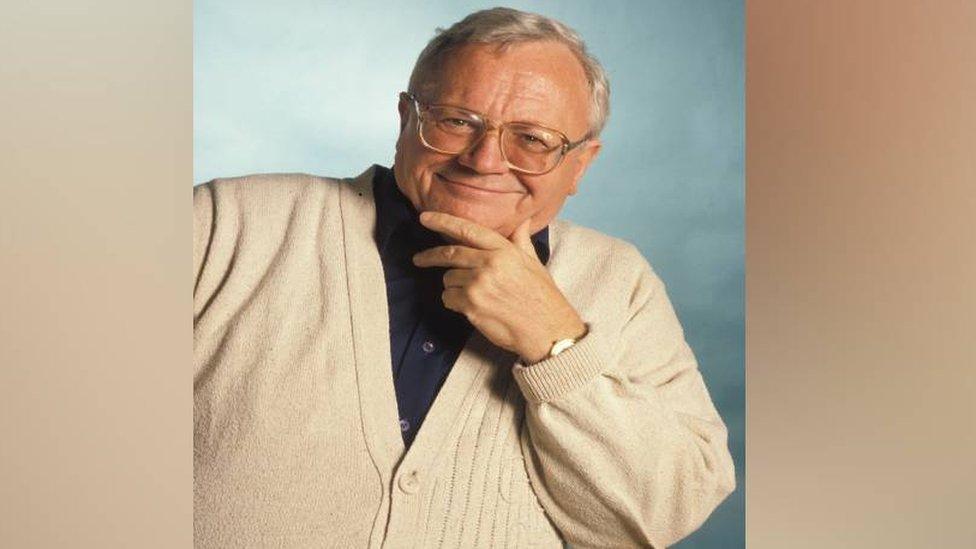
Sir Harry Secombe, one of Wales' finest stars, would have been 100 today
One hundred years ago today, entertainer Sir Harry Secombe was welcomed into the world.
Most famous for his roles in The Goon Show and as Mr Bumble in the musical Oliver, he was also a solo comedian, chat show host and renowned tenor.
In later life he was the face of religious television programmes such as Songs of Praise and ITV's Highway.
His son David and daughter Kate are now handing over his sizable archive to the National Library of Wales.
David Secombe told BBC Wales it would be impossible to compare Swansea-born Sir Harry to one modern celebrity.
"Dad had so many strings to his bow, pick your favourite stand-up, interviewer and singer… Harry Secombe was all of them," he said.
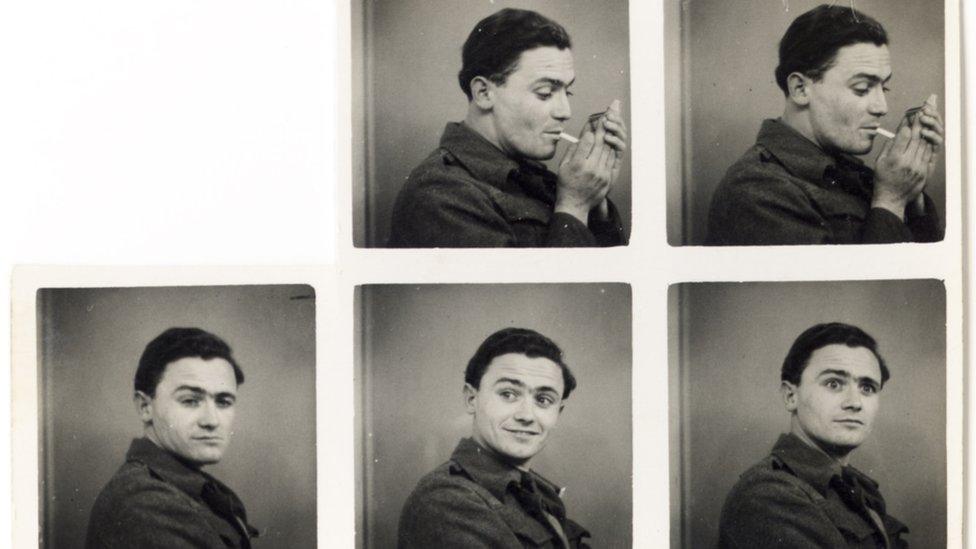
It was while serving in the Army that a young Sir Harry met fellow entertainer Spike Milligan
"As he grew older his roles became more serious, but he liked to think he'd taken his audience with him, and that he was always at the same point in their lives."
Harry's talent for acting and mimicry became obvious as a small child in the late 1920s, when on a Sunday he and his brother Fred would re-enact scenes from that morning's church service, each of them taking on parts as parishioners.
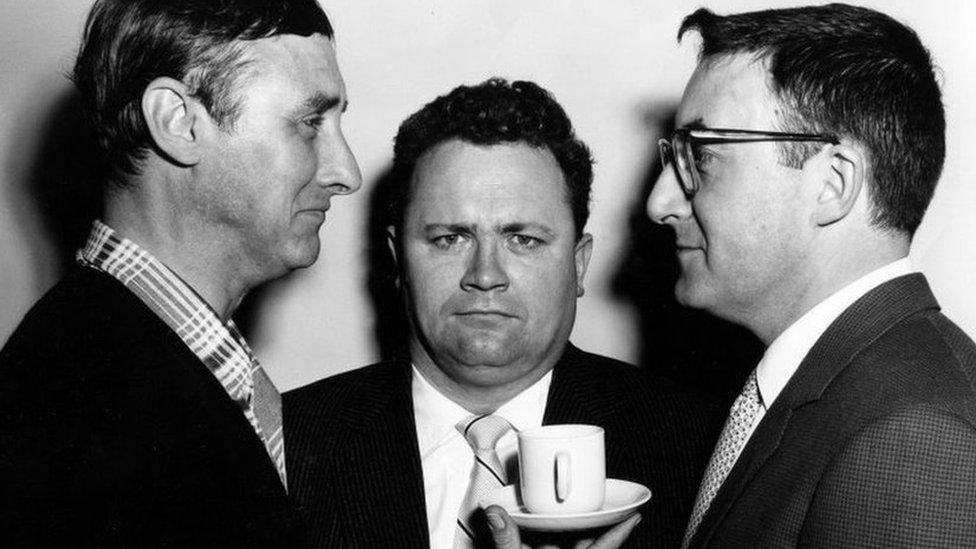
Harry Secombe with fellow Goons, Spike Milligan (left) and Peter Sellers, in 1958
Meeting Spike
While his brother became a vicar, Sir Harry signed-up for the army during World War Two, a decision which would become pivotal in his future life.
When serving as a Lance Bombardier with the Royal Artillery, he would have a chance meeting with fellow Goon Show star Spike Milligan.
David said: "While they were both stationed in North Africa, they let an artillery gun roll down a hill and over a cliff.
"Once they'd established that no-one had been hurt by it, I think the absurdity of the situation struck both of them, meeting for the first time."
David added that while the incident is well documented in the first part of Spike Milligan's autobiography Rommel, Gunner Who?, the relationship was not quite as instantaneous as Spike described it.
"I think that event stuck with both of them, and added to their sense of how ridiculous war was, but that night wasn't actually the spark.
"It was when they were reunited as troop entertainers in Italy a year or so later that they really hit it off."
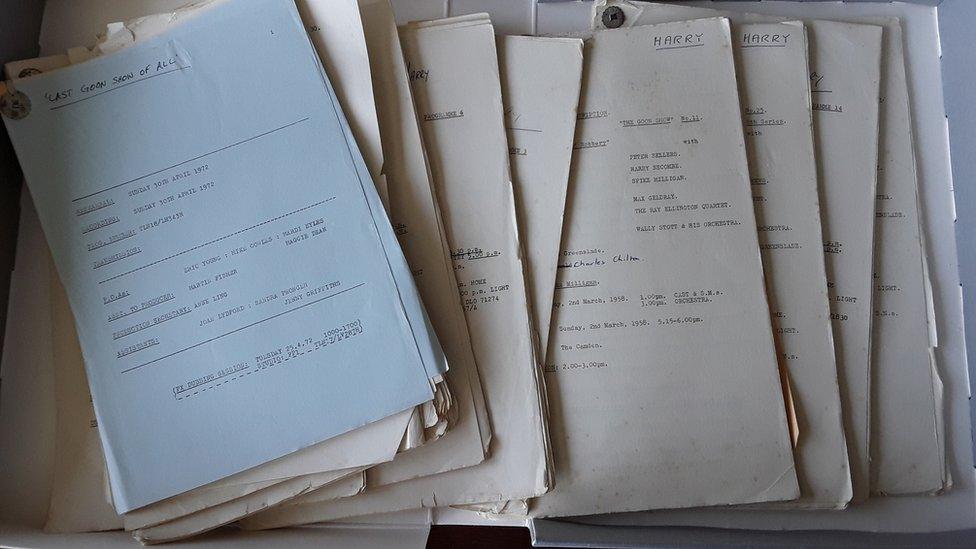
Sir Harry's treasured archive is being shared for his centenary, including scripts from The Goon Show
After the war, Sir Harry reprised his act about shaving at the Windmill theatre in London.
While there he was introduced to the other half of The Goons, Michael Bentine and Peter Sellers.
Their radio show - initially titled The Crazy People - would run from 1951 until 1960.
"It's still playing on radio today, and to younger listeners The Goon Show must sound quite safe and old fashioned," David said.
"Yet at the time that sort of surrealist, absurd, humour was cutting edge."
The act was in keeping with the feeling for change in the late 1940s and 50s, he added, introducing a new wave of comedy to mirror the NHS, the Attlee government and the welfare state - a sense that things needed to move forward.
Although Sir Harry's role within The Goons was more about keeping the troop together than forging new ground, his son said.
"Dad often joked that his biggest achievement in The Goons was preventing comedy geniuses Spike Milligan and Peter Sellers from killing each other.
"I think Dad's time in the war gave him an incredible collegiate spirit of: 'We're all in the trenches, whatever happens we have to keep the troops together!'."
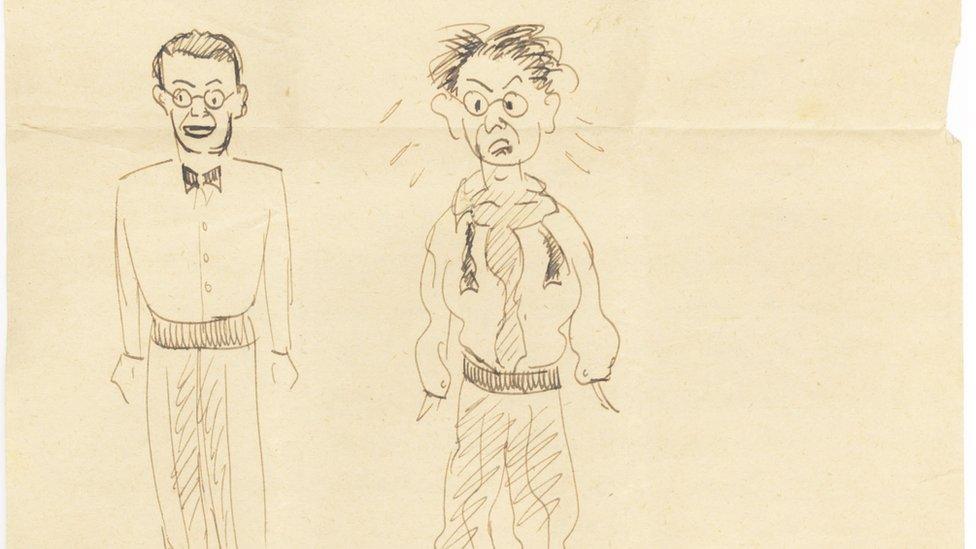
The star kept scripts, photos and cartoons as mementos of a long and varied career
David said his sister Kate had a saying which perfectly summed-up Harry's role: "Dad would shine a light on those around him, and let them be the stars."
But Harry was never the straight man until much later in his career.
By the 1970s and 80s he had transferred to serious programming, hosting his own chat show and more famously Songs of Praise and Highway.
"I think after the '60s Dad found it hard to break out of The Goons, and just needed to strike out in another direction," said David.
"Whilst he was very happy with the more serious programmes he made in his latter career, I do think it prevented him from having a renaissance in the way, say, Bob Monkhouse did."
Cartoons, scripts and cuttings
Members of the public will be able to peruse Sir Harry's treasured collection of memorabilia at the National Library of Wales.
"Dad never threw out a single thing: we have cartoons he drew during the war, his notes and scripts, and bundles and bundles of press cuttings," said David.
"Some of them we believe our grandmother started collecting, but they're just things like a photo of him presenting a teas maid to a competition winner, which have no context to us, but might do to someone once they're lodged with the museum.
"On the whole I think he'd have been incredibly proud. If there's one thing he might have changed it would be that he wouldn't be so self-deprecating.
"When he was awarded his knighthood he described himself as Sir Cumference, because of his weight, and I think him not taking himself so seriously harmed his music career.
"In Europe, where he was less known for his comedy, Dad was far more appreciated as a serious operatic tenor."

SIR HARRY SECOMBE: Family, friends and fans speak about the man and the legend
TIME TRAVEL WITH TUDUR: The funniest of moments from the last half century of Welsh telly

Related topics
- Published10 November 2017
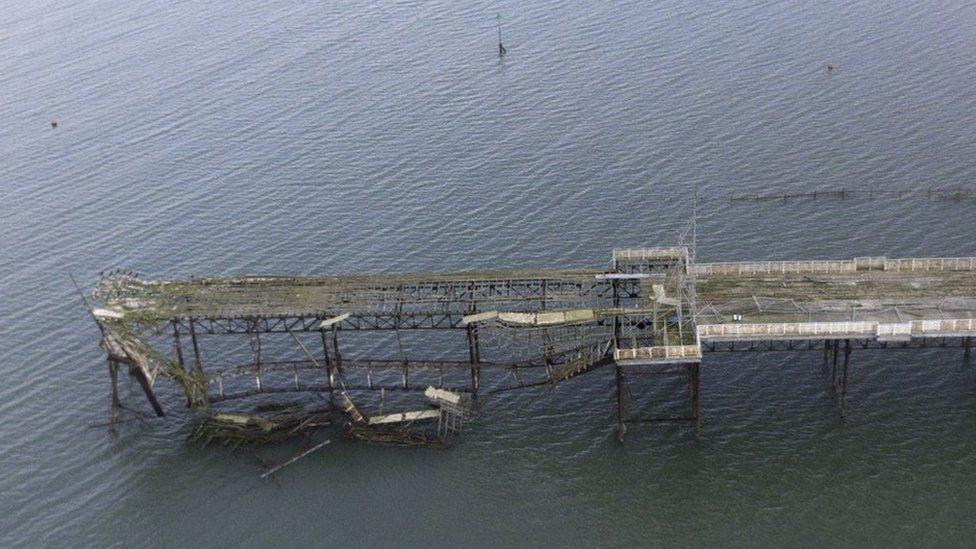
- Published15 November 2019
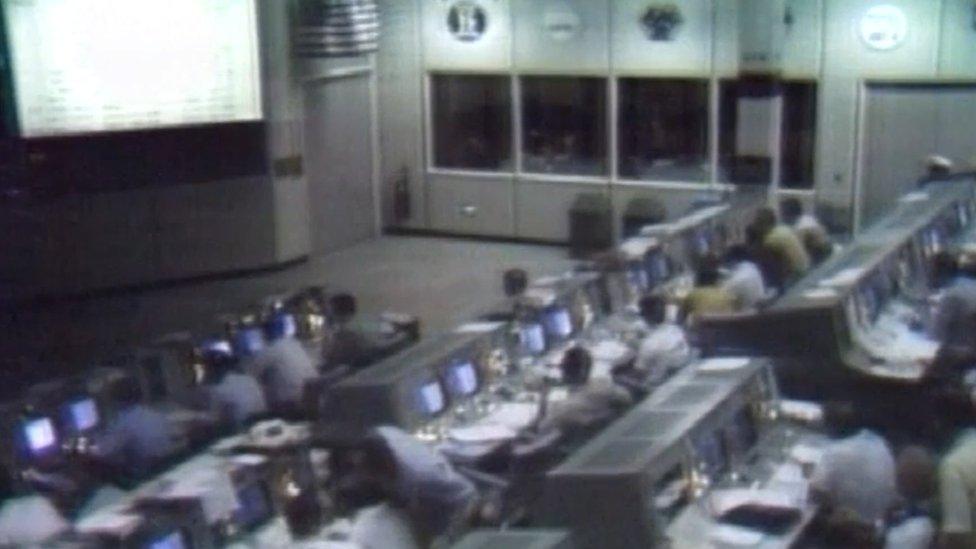
- Published29 January 2015
